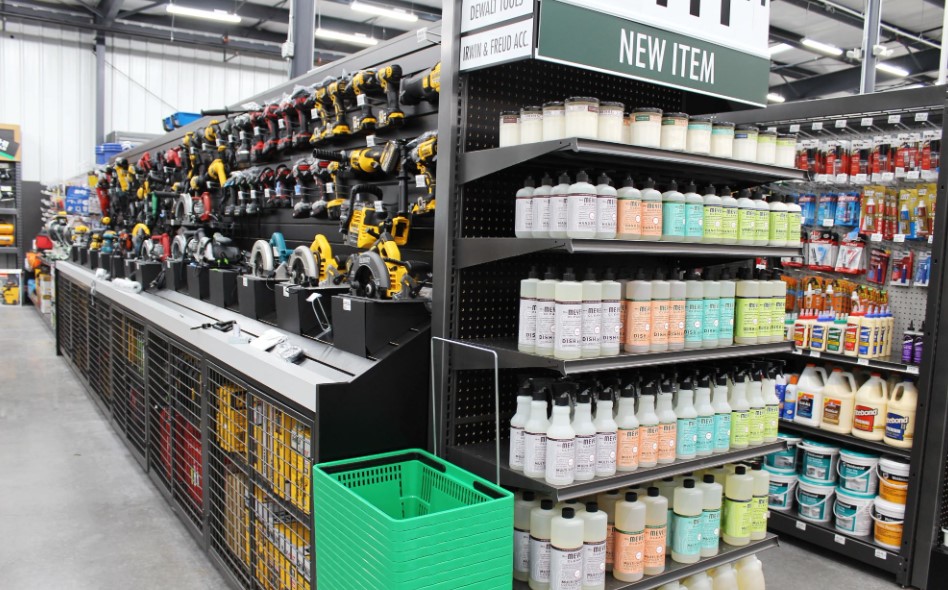Key Takeaways
- A hardware store provides essential tools, materials, and supplies.
- It supports homeowners, contractors, and businesses.
- Hardware stores are vital for community growth and maintenance.
- They face challenges like competition from large retailers.
- Stores can be general, specialty, or franchise-based.
- Benefits include convenience, expert advice, and accessibility.
What is a Hardware Store?
A hardware store San Francisco is a retail shop that sells tools, building materials, and supplies for construction, repair, and maintenance. It is the go-to place for homeowners, contractors, and small businesses. Customers can find hand tools, power tools, plumbing supplies, electrical items, paints, gardening products, and safety equipment under one roof. Unlike large chain retailers, local hardware stores often focus on personalized service and tailored solutions for community needs.
Roles of a Hardware Store
A hardware store plays multiple roles in daily life. It serves as a supplier for construction projects and as a source of quick repair tools for homeowners. It also guides customers with product advice and usage instructions. Many hardware stores now provide extra services like key cutting, paint mixing, and tool rentals. By doing this, they become more than just a shop; they act as a problem-solving partner for the community.
Roles include:
- Supplying tools and equipment
- Offering expert guidance
- Providing repair and maintenance products
- Delivering additional services like rentals and repairs
Why Businesses & Communities Need Them
Hardware stores are the backbone of many local economies. Small contractors, plumbers, and electricians depend on them for quick access to tools and parts. For homeowners, a nearby hardware store saves time and ensures urgent repairs can be completed without delay. Communities also benefit socially, as hardware stores create jobs and often support local projects. In rural areas, they are sometimes the only source of critical supplies.
Reasons communities need hardware stores:
- Support for small businesses
- Convenient access to supplies
- Emergency repair materials
- Local employment opportunities
Challenges in the Field
Running a hardware store comes with its own challenges. Competition from large retailers and online stores is a major issue. Price wars and discount strategies make it hard for smaller stores to compete. Inventory management is another challenge, as stores need to stock a wide variety of items to meet customer demands. Seasonal demand also affects sales; for example, gardening tools may sell only during specific months.
Common challenges:
- High competition from big retailers
- Fluctuating demand by season
- Rising operational costs
- Inventory management difficulties
Types of Hardware Stores
Hardware stores can be classified into different categories depending on size, focus, and ownership. Each type serves a unique market need.
| Type | Description | Example Products |
|---|---|---|
| General Hardware Store | Offers a wide range of tools and supplies | Tools, paints, plumbing items |
| Specialty Hardware Store | Focuses on one category | Electrical, plumbing, gardening |
| Franchise Hardware Store | Operates under a larger chain | National brand products, bulk items |
| Independent Local Store | Family or individually owned | Personalized service, unique items |
Benefits of Hardware Stores
Hardware stores provide more than just products. They deliver convenience, knowledge, and trust to their customers. Personalized service ensures customers find the right tools for their specific needs. Accessibility makes them the first choice for urgent repairs and small projects. Their variety and ability to stock local demand items make them irreplaceable in communities.
Benefits include:
- Wide range of products in one place
- Expert guidance from staff
- Local and emergency availability
- Added services like rentals and repairs
FAQs
Q1. What products can I buy in a hardware store?
You can buy tools, paints, electrical supplies, plumbing parts, gardening tools, and safety equipment.
Q2. Do hardware stores only serve professionals?
No, hardware stores serve both professionals and homeowners for small and large projects.
Q3. Can I get specialized services at hardware stores?
Yes, many offer services like paint mixing, key cutting, and tool rentals.
Q4. Are hardware stores cheaper than big retailers?
Prices vary, but hardware stores often compete by offering value through expert advice and convenience.
Q5. How do hardware stores support local communities?
They provide jobs, support local projects, and supply essential repair materials.
Conclusion
Hardware stores are more than just shops; they are community essentials. They provide the right tools, expert advice, and support for daily repairs and professional projects. Despite challenges like competition and seasonal sales, their importance remains strong. From local homeowners fixing leaks to businesses handling large construction projects, hardware stores remain trusted partners.
Summary
A hardware store San Francisco is a vital part of every community. It offers tools, building supplies, and expert help to both professionals and homeowners. Hardware stores support businesses, create jobs, and provide fast access to materials for repairs and maintenance. While they face challenges from online retailers and big chains, their personal service and community connection make them irreplaceable.



